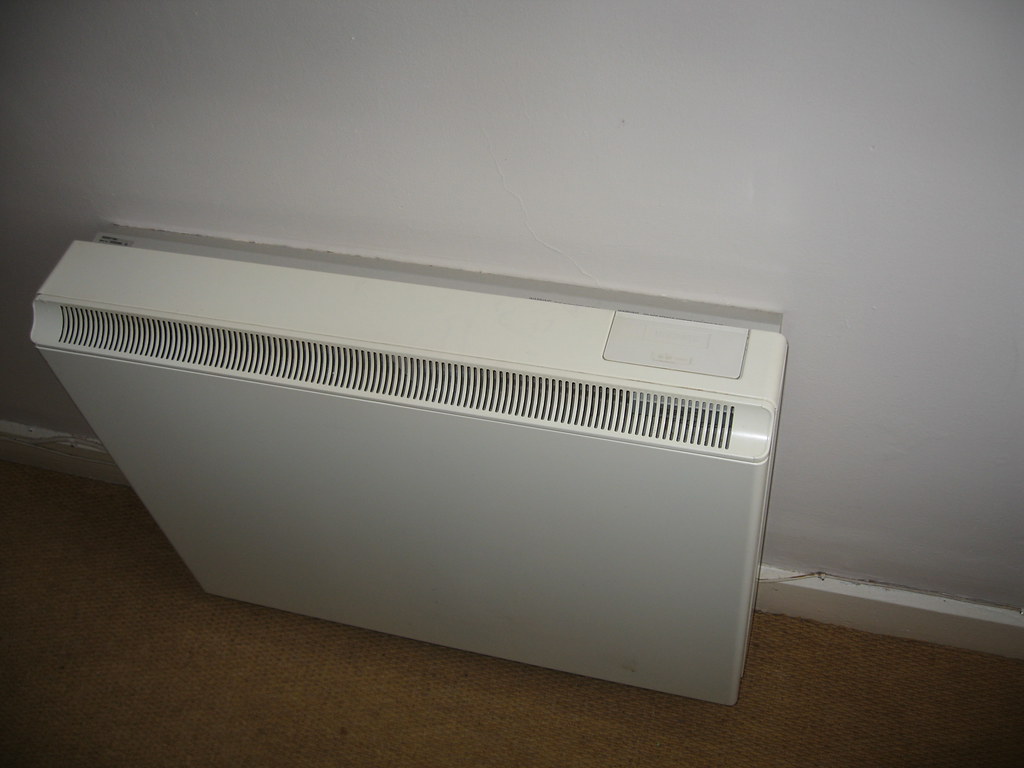
Both storage heaters and German electric radiators in Scotland produce supplemental warmth, raising the residence’s temperature but carrying out the task in very different ways. It’s therefore important to know which will best suit your home.

Storage heaters store thermal energy overnight in internal ceramic bricks and then release it during the day. They work on a cheap night tariff called Economy 7, but be aware that they can also use more expensive daytime electricity.
Aesthetics
Most modern electric radiators are slimline and conceived with the intention to blend in with modern interiors. They can come in a variety of sizes, orientations and finishes.
Radiators use a combination of convection and radiant heat to warm rooms. However, convection-only heaters are prone to losing heat to draughts and opening doors or windows, which can have a negative impact on efficiency and running costs.
They’re also more environmentally friendly than storage heaters because they use electricity, a 100% efficient fuel. As a result, they only need to be turned on when you want them to heat up. This reduces the energy used, which means they can be even more cost-effective when paired with a green tariff or home-generated electricity.
Safety
Electric radiators could be the ideal choice if you’re looking to upgrade your heating and want a safe, easy-to-control alternative to storage heaters. With various styles, sizes and orientations available, they’re designed to blend in seamlessly with modern decor.
They use convection and radiation to transfer heat, ensuring warmth isn’t lost to draughts and open doors or windows. They also work better at sharing warmth in the room than storage heaters, helping you save energy and money on your heating costs.
Unlike storage heaters, electric radiators don’t use gas, so there are no fire risks. There’s also no risk of gas leaks.
Moreover, they don’t use any toxic chemicals to heat your home, which can be an issue with other heating systems. The asbestos found in older storage heaters is hazardous, as it can readily cause lung damage and cancer.
They’re more flexible.
Electric radiators are a terrific choice if you’re looking for a flexible alternative to storage heaters. They’re slimline and designed to fit modern decor, offering all-day heat and a host of energy-saving functions.

Unlike storage heaters, which only work on a set clock, electric radiators offer a wealth of control over your heating – including programmable schedules for every room in the house. This allows you to adjust your heating settings for specific times or when you’re away from home – to save money on your energy bills.
Unlike electric radiators, storage heaters are bulky and stick out from the wall. This can make them challenging to keep hygienic and take up practical wall space – they can also be hard to move around.
They’re cheaper to run.
Electric radiators are more affordable to run than storage heaters because they don’t rely on a gas supply or use a complicated network of pipes to carry water around the home. They’re also much easier to install and require little or no maintenance.
Some modern electric radiators are even fitted with a 24/7 thermostat so you can program your heating to come on whenever you want. This means you can have your radiators on as and when you need them, which can help to cut down on energy bills.
Another significant advantage of electric radiators is that they are often fitted with an output controller, which lets you control how much heat is released into a room. This can help reduce your energy bill and ensure that you’re only using your heating when needed, avoiding unnecessary waste of power.
Many modern electric radiators can be controlled via a wireless or internet connection, making them incredibly simple and allowing you to schedule your heating to suit your lifestyle. They’re also very safe and mild in the environment, making them a great choice for anyone with allergies or sensitivities.


